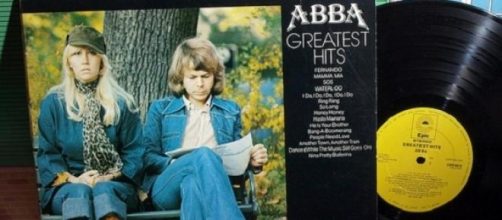As Spring begins to takes its hold on the weather, it must be fast approaching that time of year when we start to think of dusting off our United Jack flags and ridiculously garish outfits, for the annual shindig loosely referred to as the 'Eurovision Song Contest'. True, the event itself is not until May, when Vienna will try their hand at hosting an event that can draw in an estimated 180 million viewers worldwide, but preparations need to be made first. Not least of those is to actually decide who will represent your country at the event. The UK (in their wisdom) have decided this week that it will be a new duo called Electro Velvet who pit their wits and talents against the rest of Europe, plus some other nations that the Eurovision deem eligible to take part, such as Australia this year for some bizarre reason.
There was a time when representing your country in the event was deemed to be quite an honour, with the cream of the talent not just in this country but globally seeking to be a part of the celebration of music. Maybe that is pushing its appeal slightly too far, but in its earlier incarnations we did witness the birth of the Swedish super group Abba, the hugely successful (in this country at least) Bucks Fizz, plus appearances by no less than Celine Dion, Cliff Richard and Lulu. The United Kingdom has won the event on five occasions and been runner-up a further 15 times. Yet in recent years, there seems to have been a swell of anti-Britain bias or maybe just a reflection that we have few real friends across Europe.
It could of course have something to do with the entries we keep submitting which are not typically (in all honesty) all that good.
Considering our chances this time around, on initial reflection they do not appear all that promising. The early money would probably be on Australia to mark their surprise inclusion with a victory, although if they won then the event would need to be hosted Down Under next year one would imagine. That could also infer that the Aussies would become a firm part of the competition in future years, dispelling any notion that this might just be a special dispensation to allow their entry as a one-off, marking the 60th anniversary of its birth. If their 'novelty' factor does not sway the various countries' judges to vote for them, it may well favour one of the countries benefiting from the apparent 'block voting' that surfaces each year, whereby neighbouring countries seem to support each other.
While the UK have only actually finished last on three occasions, with the lowest point being the 'nul points' for the duo Jemini in 2003, their results have been on the decline since 1999. That year the rule was abandoned that songs must be performed in one of the official languages of the country participating, which has corresponded with the UK only finishing within the top ten twice since then.
As for the UK's entry this year, they have been created from the union of 35-year-old Alex Larke and 26-year-old Bianca Nicholas, who will sing what the BBC have described as an "electro swing" style song entitled "Still In Love With You". The style is believed to be reminiscent of jazz music from the 1920s, an interesting choice for the 2010s.
Alex performs in a Rolling Stones tribute act called The Rollin' Clones, while Bianca will be familiar to some as a contestant on the BBC's The Voice.
It could be asked why the United Kingdom put themselves through the agony and expense of entering each year. It could be just 'tradition', given that they have competed 57 times since their first outing in 1957. They are also one of the so called 'big 5', along with France, Germany, Italy and Spain, who progress straight through to the final, given that they are the five biggest financial contributors to the European Broadcasting Union. It may well be that the past successes make us think that this year could be our year again or that we feel that we don't want to miss out on an opportunity to rub shoulders with the rest of Europe.
Some might say that the UK keep putting in entrants that we know are unlikely to do well, perhaps as some form of odd protest about the hypocrisy of the voting systems at work. What can't be doubted though are the numbers watching the show, proving its popularity at least among some circles and giving an excuse for households across the world to don their glad rags, and to have a good old party night while the show is on. Let's just hope that 'nul points' doesn't come back to haunt us again this year!

